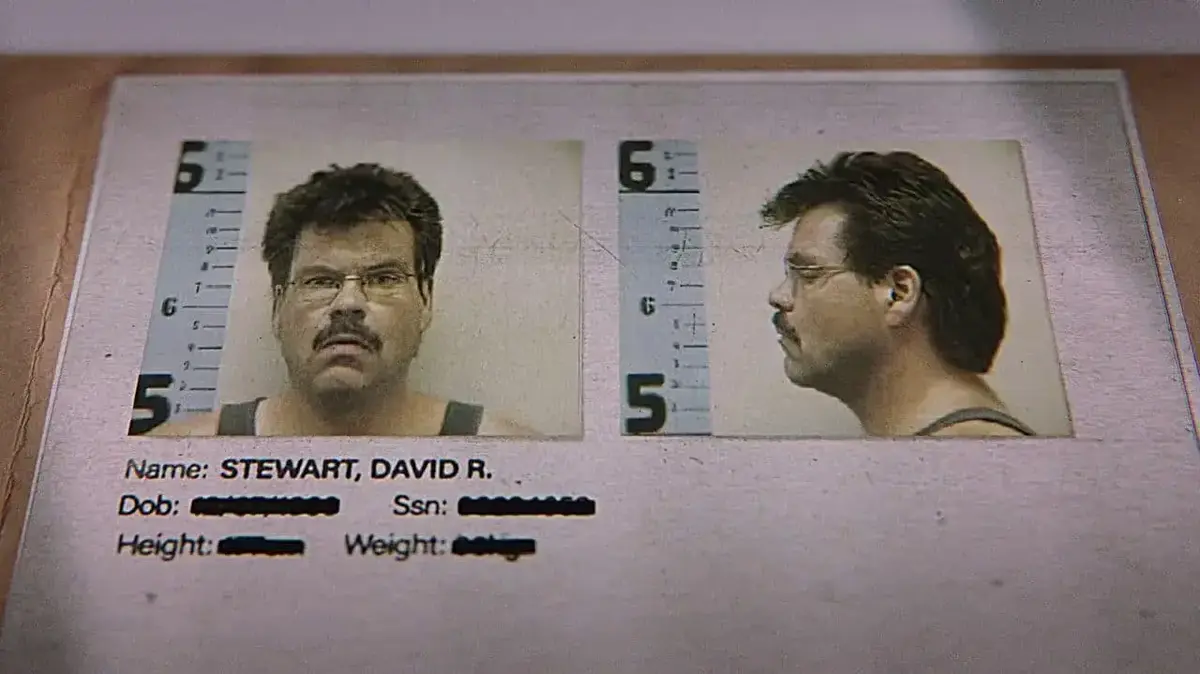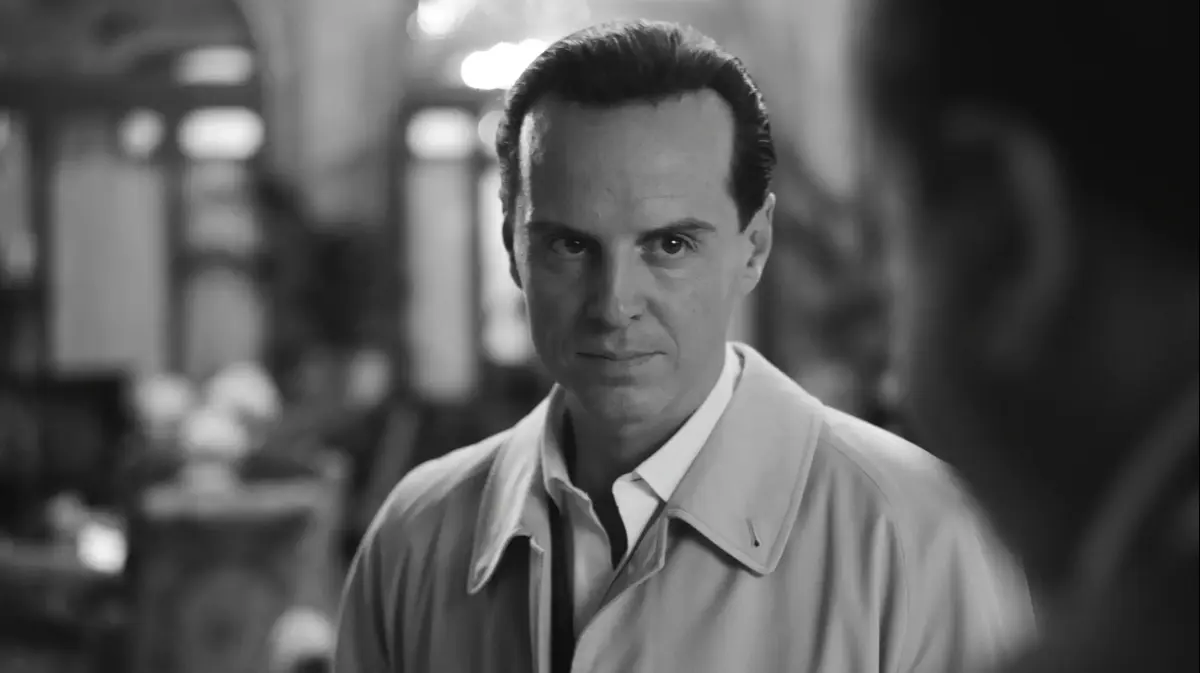Trailer for the documentary series "Don't answer the phone" (Netflix)
If the craziest phone prank you've ever pulled was the "Coke on tap," the following story is going to rock you.
the truth?
It shakes even if it doesn't.
"Don't Pick Up the Phone," Netflix's new three-part crime docu-series, tells the unbelievable (but really!) story of an imposter who called fast-food chains, identified himself as a police officer, and asked managers to answer To perform a physical search on women on the grounds that they stole money.
Looking for recommendations or want to recommend new series?
Just want to talk about TV?
Join our group on Facebook,
Shidar Hofur
What are your foreign annual series?
Vote in the big poll
Okay, body search is not the exact definition of what happened there.
The telephone "hoaxes" in question, which lasted for a period of nine years and hurt dozens of people, caused those managers to imprison, strip, humiliate and even sexually assault those junior and young female workers in fast food chains such as McDonald's.
It is important to clarify - until those cruel pranks, all those involved were normal people, both the branch managers and the workers were free of criminal records.
You can guess that they didn't even take a hamburger from the branch without getting permission.
Through conversations with police officers, investigators, lawyers, psychologists and also some of the victims of the case, the creators of "Don't answer the phone" try to answer the question - how do innocent people commit terrible crimes with one phone call?
Netflix's library is full of series depicting graphic and shocking physical violence, from "The Squid Game" to "Dahmer - Monster" and documentaries depicting murders that are hard to imagine, from "Sins of our Mother" to "The Girl in the Picture".
And after all this, precisely "Don't answer the phone", which shows offenses that are apparently at the lowest level of punishment (without, God forbid, lightening their severity), causes more and more viewers to hold their heads and not believe.
If in stories about a mother who joins a cult and murders her children we can still tell ourselves that only a crazy person would do such a thing, the tensions presented here sound like a situation that each and every one of us could find ourselves in.
So is there a chance that you and I could also become criminals one bright day?
More in Walla!
"Ivy is the greatest actor I've ever known, but I won't work with sexual abusers"
To the full article
Who is "Officer Scott"?
"Don't answer the phone" (Photo: Netflix)
To try and understand a little more what really happened there, it is worth diving into those conversations that destroyed the lives of many people.
And more specifically, to the conversation that took place in April 2009 at a McDonald's branch in Mount Washington, Kentucky, a town with less than 20 thousand inhabitants.
That day, someone who identified himself as "Officer Scott" called the branch and asked to speak to the deputy branch manager, a woman named Donna Jean Summers, to report that one of her workers had stolen a wallet from a customer.
"Officer Scott" described the same woman, a description to which Louise Ogburn answered accurately.
Ogburn, an 18-year-old high school student, who attended the local church regularly and in her four months at the branch was considered a good worker and had no disciplinary problems, was called by Summers to the manager's office and there, while on the line with the same Scott, the nightmare of her life began.
That "Officer Scott" had a fixed method, he would present the managers with two options: either the suspicious employees would be arrested and taken to a detention facility where they would be searched, or the search would be conducted by telephone under the guidance of the policeman.
Most of the suspects, like Louise Ogburn, who knew they hadn't committed anything, preferred to stay in the branch with a person they knew and go through the search by him.
They did not imagine that the search would last for many hours, that they would be asked to take off all their clothes (including their underwear), perform humiliating physical actions such as jumping on the spot, undergo a search of their private parts, and in one exceptional case even perform oral sex on the person who checked them.
All while on the other line is a man posing as a policeman and 'manipulating' the event.
If this were a one-time incident, one would still think that the impostor fell for particularly naive people, but "Don't answer the phone" describes dozens of cases that occurred between 1995 and 2004, and both the victims and the attackers (who, as mentioned, did not plan to be such), are heard in most cases as reasonable and even intelligent people.
The most difficult moments in the series are those in which the impersonation victims tell of the moment when they realized that the entire ordeal they had gone through for hours was an impersonation, and that the person on the other end was not a police officer at all.
It is about a combination of humiliation, shame, unhappiness and self-hatred that is difficult to describe in words.
More in Walla!
"The New Acquisition": This series insults every shred of intelligence in the brain and yet is pure fun
To the full article
Dozens of cases over almost a decade.
"Don't answer the phone" (Photo: Netflix)
So what made those managers abuse employees for no logical reason?
The series cites as an example one of the most famous studies conducted in the field of social psychology and known as "Milgram's experiment", which was inspired by the Eichmann trial.
In 1962, the psychologist Stanley Milgram from Yale University asked to examine the way in which people respond to authority, or rather - to what extent they will be willing to obey the orders given to them, even and especially when these are contrary to their values and conscience.
The experiment went like this: a researcher told the participants in the experiment, and the actor who pretended to be the participant, that they were going to participate in a study that would test the effectiveness of punishments on learning.
The participant in the experiment believed that he got the role of the teacher, while the actor pretending to be the participant got the role of the student.
The teacher gave the student a series of questions, and it was assumed that every time the student made a mistake he should give him an electric shock.
For each mistake he was asked to increase the power of the market by 15 volts.
In practice, no electric shocks were given at all, but the simulated teachers did not know this because the students behaved as if they had received electric shocks.
In the first series of tests, 65% of the participants (those who were given the role of teachers) gave the students the highest power of the electric market - 450 volts.
None of the participants stopped the experiment before reaching a 300 V electric shock.
Although Stanley Milgram's experiment was conducted in 1962, it was published only 12 years later, and tried to show how ordinary people are capable of committing terrible crimes when they think they are obeying an authority greater than themselves.
What happened to that man who pretended to be "Officer Scott", and who is he anyway?
The three episodes of "Don't answer the phone" answer this, but I say in advance - in this case the twists are less of an issue, but our behavior as humans and the abysses we are capable of reaching when we lose our moral conscience.
More in Walla!
"The White Lotus": The second season excelled in the combination between the twisted and the refined
To the full article
When ordinary people commit terrible crimes.
"Don't answer the phone" (Photo: Netflix)
in the small
"Don't Answer the Phone" isn't even the most disturbing docu you'll find on Netflix about blind obedience.
"The Puppet Master", which appeared at the beginning of the year, brought the unbelievable story of a man who posed as a British intelligence agent and managed to make a group of people leave their families and go underground for periods of decades.
One of the victims has given up contact with her children to this day and is still hanging around the world with the same crook.
Yes, although there is a series on Netflix that tells about his exploits.
culture
TV
TV review
Tags
The new purchase
TV review















